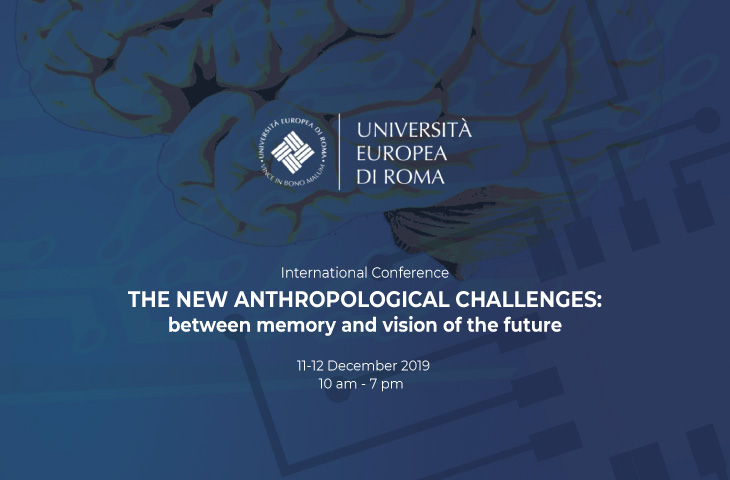By Alberto García
From 11 to 12 December 2019 Our Director Prof. Alberto Garcia and Chair Fellow Fr. Alberto Carrara, LC, will participate in the international conference: the new anthropological challenges between memory and vision of the future at the Notre Dame Pontifical Institute in Jerusalem organized by Università Europea di Roma.
Prof. Alberto García will discuss Dialogue in diversity: Cross-cultural challenge of fostering convergence and cooperation in global bioethics
Abstract
When we come into contact and communication with people very different from us, we naturally experience a certain feeling of fear. We are afraid of linguistic, political, social, religious, racial or economic diversity. The root of that fear is not the person in front of us, but our ignorance of the other, of his or her world, of his or her cultural and social environment. The knowledge of people helps to overcome fears, prejudices. The encounter with people is the best antidote against intolerance and hate. But I mean a knowledge not of the ideas or ideologies that are learned in the books, but the knowledge and wisdom that flourish from the encounter and dialogue with the diverse.
In my experience of the last 10 years working in the university and in international organizations to promote convergence and cooperation between bioethics experts that come from different cultural traditions, Buddhism, Confucianism, Christianity, Islam, Judaism and Hinduism, I have been able to make and enjoyable experience that I want to share and I have come to the conviction that this multicultural and intereligious dialogue is not only possible, but that it is a moral imperative that is imposed on me not so much by the force of the rules or laws necessary in political life, but by force of friendship and love I’ve found meeting people. This has convinced me that the experience and the fruit of the dialogue is not only possible and something due, but that it is something particularly beautiful. It helps us to become aware of that universal fraternity that allows us to recognize us as one, that is, part of a common humanity, precisely by appreciating our diversity. It takes us out of our “comfort area” in which I sometimes shield myself to face “face to face” with the treasure of those who do not resemble me, who do not think or believe what I do, who belong to another race or is a citizen of other worlds.
When together we seek to live an existence in peace and harmony, trying to build the common good and social cohesion, we offer to the society a testimony and a credible voice that people who have a religious conviction are not an obstacle to scientific and technological development, nor are we the cause of conflicts and wars – as it is sometimes said. We can and should offer our contribution to the international Community for the sake of an ever more globalized and diverse humanity. Let us not forget that about 83% of the world population has a defined cultural and religious identity (even with varying levels of conviction and observance). Only 17% are atheists and agnostics. So I believe that it is legitimate and fair (it is deeply democratic) that our convergent voices be heard, that is, that of a choir characterized by its religious and philosophical diversity, but that in many respects they have visions not opposed but similar and in great harmony .

